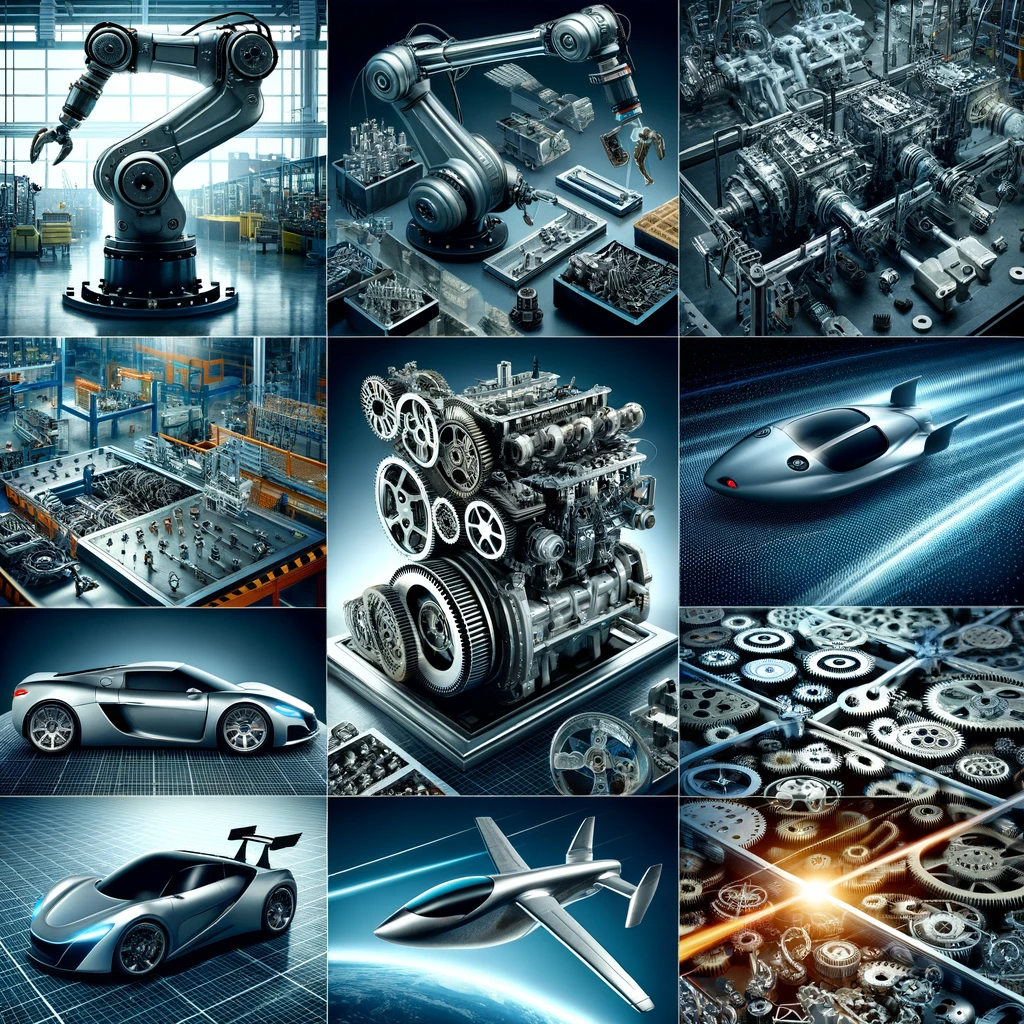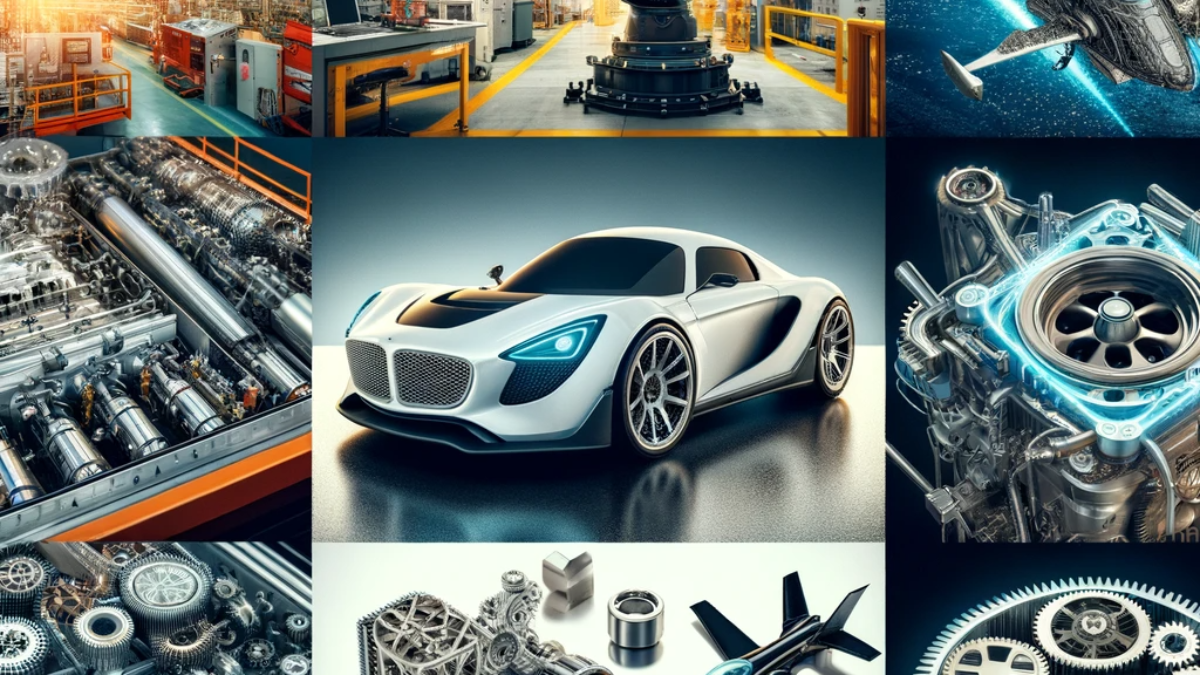Mechanical engineering, a discipline that is both expansive and longstanding within the field of engineering, covers a wide array of subjects. It encompasses the process of creating, evaluating, producing, and upkeeping mechanical systems. This field is essential to a wide range of industries, including as automotive, aerospace, energy, material sciences, and robotics. Let us explore a series of crucial inquiries that delve into the extensive scope and complexity of mechanical engineerin
Table of Contents
mechanical engineering interview questions and answers
- What are the Fundamental Principles of Mechanical Engineering? Mechanical engineering is grounded in the principles of physics and material science. Understanding how forces affect motion and how materials respond under different conditions is crucial.
- How has Modern Technology Influenced Mechanical Engineering? The advent of technologies like 3D printing, artificial intelligence, and nanotechnology has revolutionized traditional mechanical engineering practices. It’s essential to explore the integration of these technologies into current mechanical systems.

- What Role Does Mechanical Engineering Play in Renewable Energy? With a growing emphasis on sustainable energy, mechanical engineers are pivotal in designing and optimizing wind turbines, solar panels, and other renewable energy sources.
- How Do Mechanical Engineers Solve Complex Problems? Mechanical engineers often employ computer-aided design (CAD) software, finite element analysis (FEA), and computational fluid dynamics (CFD) to analyze and solve complex engineering problems.
- What are the Latest Innovations in Robotics and Automation: The field of robotics and automation, a sub-discipline of mechanical engineering, is rapidly advancing. Understanding the latest developments in robotic design and automation systems is vital.
- What is the Future of Mechanical Engineering in Space Exploration? Space exploration presents unique challenges that require innovative mechanical engineering solutions, such as spacecraft design, life support systems, and robotics for planetary exploration.
- How is Mechanical Engineering Contributing to Healthcare? Biomechanics and medical devices are critical areas where mechanical engineering intersects with healthcare, leading to innovations like prosthetics and diagnostic equipment.
- What are the Ethical Considerations in Mechanical Engineering? As with any engineering field, mechanical engineers face ethical dilemmas related to safety, environmental impact, and sustainable practices.
- How Does Material Science Influence Mechanical Engineering? The choice of materials is paramount in mechanical engineering. Understanding material properties helps in designing more efficient, durable, and cost-effective products.
- What are the Emerging Trends in Automotive Engineering? Exploring the shift towards electric vehicles, autonomous driving, and sustainable materials in automotive engineering is essential.
Additional mechanical engineering interview questions
- How is Computational Fluid Dynamics (CFD) Used in Mechanical Engineering?
- Answer: CFD is a crucial tool in mechanical engineering for simulating fluid flow, heat transfer, and associated phenomena. It’s widely used in designing aerodynamic vehicles, optimizing HVAC systems in buildings, and enhancing the efficiency of energy systems.
- What are the Challenges in Material Selection for High-Temperature Applications?
- Answer: The primary challenges include finding materials that can withstand extreme temperatures without losing strength or deforming. Engineers often turn to superalloys, ceramics, and composite materials for such applications, especially in aerospace and automotive industries.
- How do Mechanical Engineers Contribute to Sustainable Manufacturing?
- Answer: Mechanical engineers play a significant role in sustainable manufacturing by designing energy-efficient machinery, optimizing production processes to reduce waste, and selecting environmentally friendly materials.
- What is the Impact of Artificial Intelligence (AI) in Mechanical Engineering?
- Answer: AI is transforming mechanical engineering by enabling predictive maintenance of machinery, improving design processes through generative design algorithms, and enhancing the accuracy of simulations and analyses.
- How is 3D Printing Changing the Landscape of Mechanical Engineering?
- Answer: 3D printing, or additive manufacturing, is revolutionizing mechanical engineering by allowing for the rapid prototyping of complex parts, customization of components, and reduction in material wastage.
- What Are the Advances in Energy Storage and Their Importance in Mechanical Engineering?
- Answer: Advances in energy storage, such as improved battery technologies and supercapacitors, are crucial for the development of electric vehicles, renewable energy systems, and portable electronic devices.
- How are Nanotechnologies Being Integrated into Mechanical Engineering?
- Answer: Nanotechnologies are being used to create stronger and lighter materials, enhance surface properties of mechanical components, and develop nano-scale sensors and motors.
- What Role Do Mechanical Engineers Play in the Development of Smart Materials?
- Answer: Mechanical engineers are involved in developing and utilizing smart materials that can change their properties in response to external stimuli, such as shape memory alloys and piezoelectric materials.
- How is Virtual Reality (VR) Used in Mechanical Engineering?
- Answer: VR is increasingly used for immersive design visualization, allowing engineers to examine and interact with 3D models of mechanical systems, which enhances understanding and facilitates collaborative design.
- What are the Future Trends in Mechatronics and Automation?
- Answer: Future trends include the integration of IoT for smarter automation, advancements in machine learning for autonomous systems, and the development of more efficient and responsive control systems in robotics.

Add a Comment